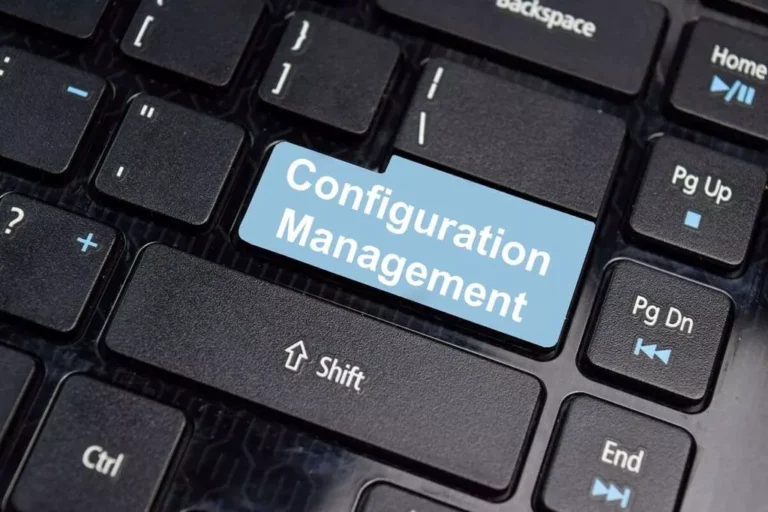Once you’re https://www.globalcloudteam.com/ happy with your work, you probably can open a pull request to merge the adjustments in the present department (the head branch) into one other branch (the base branch). You at all times create a department from an present department. Typically, you might create a brand new branch from the default department of your repository.
What Is Head In Git? (conceptually)
If given twice, printthe path of the linked worktree (if any) and the name of the upstreambranch, as properly (see additionally git remote present ). Note that thecurrent worktree’s HEAD will not have its path printed (it will alwaysbe your present directory). With a -m or -M option, shall be renamed to .If had a corresponding reflog, it’s what is a branch in jira renamed to match, and a reflog entry is created to remember the branchrenaming. If exists, -M must be used to drive the renameto happen. However, something you commit from this level on might be added to the feature department.

Disable Actions For All Forks By Default
Notice that both information contain only our original text. When switching to the primary branch, our working folder content material was modified to the information from the final commit to the principle branch. It doesn’t include any of the changes we made in our different branches.
The Operator ‘aten::avg_pool3dout’ Is Not Currently Applied For The Mps Gadget
Our file1.txt has our unique textual content, not our style modifications. As developers, we are sometimes taken away from our current task to work on another task or concern. Continue to make modifications to the branch, committing these adjustments as needed. Consider committing whenever you’ve accomplished a logical portion of the duty or when you should put the duty apart for other work or when leaving for the day.
How To Use Github Tasks To Streamline Your Workflows, Reduce Handbook Reporting, And Eliminate Hassle
You can have head branches routinely deleted after pull requests are merged in your repository. For more info, see “Managing the automatic deletion of branches.” In the subsequent diagram, someone has merged the pull request for feature1 into the main department, and so they have deleted the feature1 branch. As a end result, GitHub has routinely retargeted the pull request for feature2 in order that its base branch is now major. I elevate a PR (my feature branch is in my native machine), obtained merged, get ready for subsequent launch.
2 Git Branching – Basic Branching And Merging
- Now we’ve created a new department from grasp, and altered to it.
- For our instance, for instance we’re nonetheless engaged on the fashion adjustments task, and receive an pressing problem from our users that our login page now not works.
- Repository directors can additionally enable several other protected branch settings to implement numerous workflows earlier than a branch could be merged.
- The second checkout command creates a new department known as style_change and switches to that department.
- Branches are a core feature of Git’s version monitoring and are used constantly by groups engaged on the same software program codebase.
To transfer from detached to connected state, you’ll have the ability to both create a new department from where you’re at, or switch again to an present branch. In detached state experimental adjustments may be made without impacting any present branch. See infographic under illustrating the difference between committing in connected vs indifferent state. HEAD is just a special pointer that points to the local department you’re presently on. Now we’re carried out with the task and prepared to merge it into the primary department.
Deleting And Restoring Branches In A Pull Request
Now, how does git know the father or mother of the present commit? So HEAD is a pointer to the (reference of the) final commit which can become the parent of the present commit. There’s no local grasp department anymore, because it’s renamed to the principle branch. To minimize extra in depth merging conflicts later, it’s typically a good suggestion to keep all task and problem branches updated with primary. That means after adjustments from a department are merged into the main department, we wish to merge these modifications from the primary department again to all remaining task or concern branches. For our instance, we did not make any adjustments on the current department ( main) because the level we created the login_issue department.
The Way To Merge “Major” Back To Branches
The -a choice phases all modified and deleted information within the working folder, however does not embody any new information. This commit command then creates a brand new snapshot of our working folder (except for any new files) and commits them. The department command lists all current branches within the repository. Create a department for every task or issue you’re employed on.

The diagram above visualizes a repository with two isolated traces of development, one for a little function, and one for a longer-running characteristic. By developing them in branches, it’s not only attainable to work on each of them in parallel, however it also retains the major branch free from questionable code. When you create a brand new department, e.g. with a command like “git branch my-new-branch”, you’ll discover a new bodily file in here, named “my-new-branch”. Repository directors also can enable rulesets. Rulesets can be used to require specific branch names when creating a new department, or to allow only users with bypass permissions to publish a new branch to the distant repository. GitHub Desktop will show a warning and stop the department from being created if the branch does not comply with the rulesets.
You can take a look at this graphically if you attempt the next exercise. You’ll get something barely completely different, but they key bits will be there. When it is time to checkout the commit immediately, just use no matter abbreviated hash you get from the first output (here it is a3c485d). To let others see the new main department, you need to push it to the remote.This makes the renamed department obtainable on the remote. Do not rename branches which would possibly be nonetheless in use by other collaborators.Do not rename a department like master/main/mainline with out having read the section Changing the master department name.

Now in my native machine, if I git pull from master branch (remote github) to my native feature department, all my local department code might be gone. The log command offers the commit history of the present department. It features a long string of numbers and letters known as a Secure Hash Algorithm or SHA. Technically, it’s a checksum based on the files within the commit plus the log message, creator data, and date. The log also displays the particular person that made the commit (name and email), the commit date, and the commit message.
Merging might be the most popular way to combine modifications. It allows you to bring the entire new commits from one other branch into your present HEAD branch. The monitoring connection helps Git fill within the blanks – which department on which remote you need to push to, for instance. Now we’ve a fix ready for grasp, and we need to merge the two branches. When the work is complete, a department could be merged with the primary project. Branches let you work on different parts of a project with out impacting the principle department.

For instance, when you have simply deleted a distant function branch, it might make sense to also delete its local tracking department. That method, you make positive you aren’t left with a lot of out of date branches – and a messy Git repository. From the above output, you can see that the master department merged with renamedB1.

